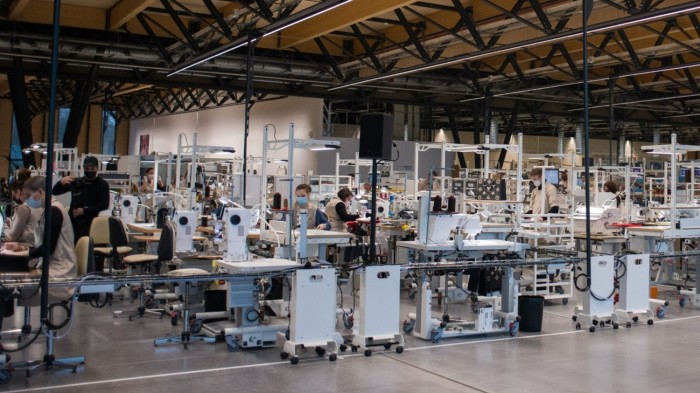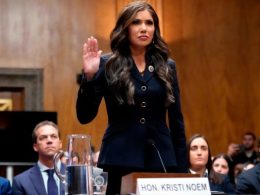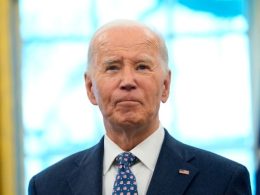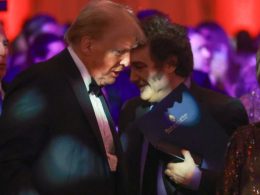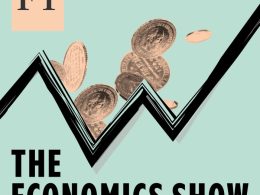Unlock the White House Watch newsletter for free
Your guide to what the 2024 US election means for Washington and the world
International companies are overhauling their supply chains and boosting their presence in the US to align themselves with Donald Trump’s nationalist economic agenda and minimise the impact of his planned tariffs.
As the US president prepares to levy duties on imports as soon as this weekend, top executives from Europe and beyond, including LVMH’s Bernard Arnault and Shell’s Wael Sawan, say they expect to invest more in the US.
“We are being strongly encouraged by US authorities to keep setting up [workshops],” Arnault said this week. “In the current environment, it’s something that we’re looking at seriously.”
LVMH, Europe’s second most-valuable listed company, makes most of its products in France and Italy, but has opened three Louis Vuitton workshops in the US and invested billions in its American jeweller Tiffany.
Arnault, who attended Trump’s inauguration in Washington last week, said he felt a “wind of optimism” in the US and returning to France was a “bit of a cold shower”.
He and other executives spoke favourably of lower US taxes, cheaper energy costs and higher growth, especially compared with Europe.
Shell’s Sawan said his energy group, the UK’s second most-valuable listed company, planned to expand its US business. “I expect we will only continue to grow [in the US] because of the good momentum we are seeing around supportive tax structures and enabling regulations . . . all of which will give us a nice tailwind and more confidence to invest,” he told the Financial Times.
In his inauguration speech this month, Trump vowed to “drill, baby, drill” to exploit US oil resources.
While the president seeks to use tariffs to push companies to relocate to the US and pursue other goals, beginning with measures against Canada, Mexico and China, the EU has acknowledged groups are being deterred by its own red tape.
In an FT article, Christine Lagarde and Ursula von der Leyen, presidents of the European Central Bank and European Commission, warned regulation was an obstacle to investment, adding “we need to make doing business in Europe cheaper, especially in terms of energy costs”.
The threat of US tariffs is also spurring a rebalancing of investments, according to executives and bankers, in an effort that spans sectors.
Sweden’s Hennes & Mauritz is looking to buy more of its products from suppliers near its key markets, including the US, said chief executive Daniel Ervér, adding the retail group was studying various “scenarios” to deal with tariffs.
“[We want] flexibility in our supply chain to be able to mitigate potential tariffs,” he told the FT. “The world is less globalised.”
Zayong Koo, executive vice-president of South Korean carmaker Hyundai, last week said: “It may take a bit of time, but . . . we are definitely trying to localise the production, which will minimise the potential impact from the tariffs.”
John Elkann, chair of carmaker Stellantis, also flew to Washington ahead of Trump’s inauguration, spending four days with the president and senior government officials. Days later, the Fiat and Jeep owner announced $5bn investment in the US; in December, after Trump’s election, the group had reversed a decision to cut 1,100 jobs at a Jeep plant in Ohio.
One European banker said: “Anyone under-represented in the US or over-represented in Europe . . . would want to make sure they are building the next plant there versus here.”
A rush by companies to expand in the US to defend against tariffs and benefit from potentially less onerous regulation and a strong economy under Trump would follow an earlier surge in investment under his predecessor Joe Biden.
The Biden administration handed $370bn in loans, subsidies and other support to companies under his flagship Inflation Reduction Act, though Trump has moved to scrap some of the handouts.
Additional reporting by Ian Johnston in Paris and Ivan Levingston in London
Source link





